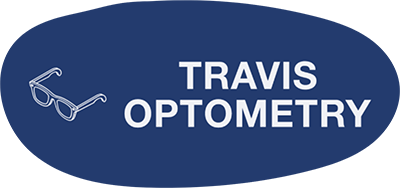
Eye exams play an essential role in maintaining not only our eye health but our overall wellness. They can detect early signs of certain eye diseases, which can often be treated if caught early. They can also uncover underlying health issues. Eye exams are an integral part of preventive healthcare.
What Does an Eye Exam Involve?
An eye exam is a series of tests designed to evaluate your vision and check for eye diseases. It's performed by an optometrist and usually takes about an hour.
The first part of an eye exam typically involves a series of vision tests. These can include a refraction assessment to determine the correct prescription for glasses or contact lenses, a visual field test to check your peripheral vision and a color blindness test.
The second part of the exam involves a detailed examination of your eye health. This can involve various tests such as a slit lamp examination, which allows the doctor to see the structures at the front of the eye, and an intraocular pressure measurement to detect glaucoma. The optometrist may also dilate your pupils to inspect the back of your eyes.
Understanding How Often You Should Get an Eye Exam
The question of how often you should get an eye exam can have different answers for different people. It largely depends on your age, health status, and risk factors. However, as a general guideline, adults should have their eyes checked at least once a year.
For children, it's recommended to have their first eye exam around six months of age, another when they are three years old, and again before they start school. From then onward, children should get their eyes examined annually.
For adults over 60, or those with health conditions like diabetes high blood pressure, or a family history of eye diseases, more frequent exams may be necessary. It's always best to consult with your optometrist to understand the best schedule for your eye exams.
Factors That Determine the Frequency of Eye Exams
Several factors determine the frequency of eye exams. Age is one of the most significant factors. As we age, our risk of developing certain eye conditions like glaucoma, cataracts, and macular degeneration increases, making regular eye exams increasingly important.
Another factor is your medical history. If you have a health condition such as diabetes or high blood pressure, or a family history of eye diseases, you may need more frequent eye exams.
Your lifestyle can also affect how often you need an eye exam. If your work involves heavy computer use, or if you often expose your eyes to harmful environmental factors, you may need to have your eyes checked more frequently.
Choosing Travis Optometry for Your Eye Exams
When it comes to your eye health, choosing Travis Optometry is the trusted choice. Our team and experienced optometrists use advanced technology to provide comprehensive eye exams. We are committed to maintaining the highest standards of patient care and ensuring your comfort throughout the exam process.
At Travis Optometry, we understand the importance of eye exams in maintaining your overall health. That's why we take the time to get to know you, your eye care history, and your vision needs. Our goal is to provide personalized care that meets your individual needs.
Beyond providing eye exams, Travis Optometry also offers a wide range of eyewear, including glasses and contact lenses. We believe that everyone should have access to quality eye care and eyewear, and we are committed to making that a reality for our patients.
Maintaining Eye Health through Regular Eye Exams
Regular eye exams play a critical role in maintaining our eye health and overall wellness. Regular eye exams can detect vision problems early, making them easier to treat. At Travis Optometry, we are committed to helping you maintain your eye health by offering comprehensive eye exams and a wide range of eyewear to meet your individual needs.
Prioritize your eye health and schedule your next eye exam with Travis Optometry in our Scottsdale, Arizona office. We provide quality eye care services and products for the entire family. Please call (480) 401-5913 to book your appointment today.





